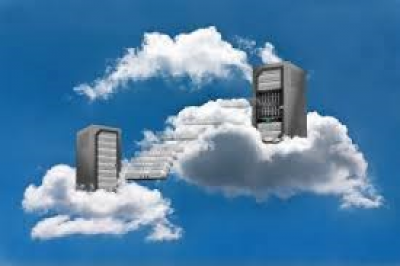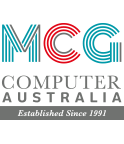28 April 2017
Does your business need a dedicated server?

Does your business need a dedicated server?
Is your business flexibility suffering because it has a number of disconnected laptops and desktop computers all doing their own thing?
Chances are if you have more than a couple of users, the time has come to invest in your own server. It might feel like a big step for a small to medium business to take, but the interconnectivity, time savings, improved security and peace of mind are definitely worth considering. But what does a server do?
What is a server?
A server is a computer that acts as a centralised store for all the data and applications your business uses every day. Think email, messaging apps, shared printers, databases, calendars, an intranet and any dedicated software programs. Not only is a server more powerful than a desktop or laptop, but it is engineered to run 24/7 and allows multiple user access. Contrast this with a desktop PC or laptop which only serves one user and has limited connectivity with other machines.
How can a server help your business?
The most obvious benefit of a server is that it makes it easy to access your data. All your staff can share and collaborate seamlessly. You can also easily roll out security or software updates to all your staff via your server. With multiple processors, a server will also power through resource-intensive tasks and crunch data quickly – jobs a PC will struggle with. And with mirrored hard drives, your data is secure if one fails or if a desktop/laptop hard drive dies.
Do you need your own server?
If your business has two or more computers, chances are you will work more efficiently with a dedicated server. The increased data capacity, seamless resource sharing, improved performance and security of your own server will transform the way you work.
Your business server options
You have two main options when it comes to selecting a suitable server:
- Buy or build your own: You can buy or build your own on-premises server. Here you need to consider some practicalities such as performance specs and whether it has the capacity to expand. You want a unit that’s scalable and can grow with you as you add applications and staff members to your team. Entry-level servers are about the price of a desktop PC but with more resources for data management. Prices escalate as you add more features such as storage and processor speed. Against this DIY approach is that you need to have the time and know-how to dedicate to setting it up and maintaining it. You also need to factor in the purchase of the hardware and the running costs into your budget.
- Managed service: Your other option is to outsource this function to an MCG Melbourne Computer managed service. We can provide a unit either in our office or use a cloud-based service. Both eliminate the day-to-day hassle of maintaining the hardware component. You ca n also easily increase your system capacity by buying more space on a cloud server or upgrading your service without purchasing new hardware.
MCG provides a secure location for your managed IT server network. We provide consulting, designing and planning advice on setting up and maintaining your IT server networks either in our office or on the Cloud.



